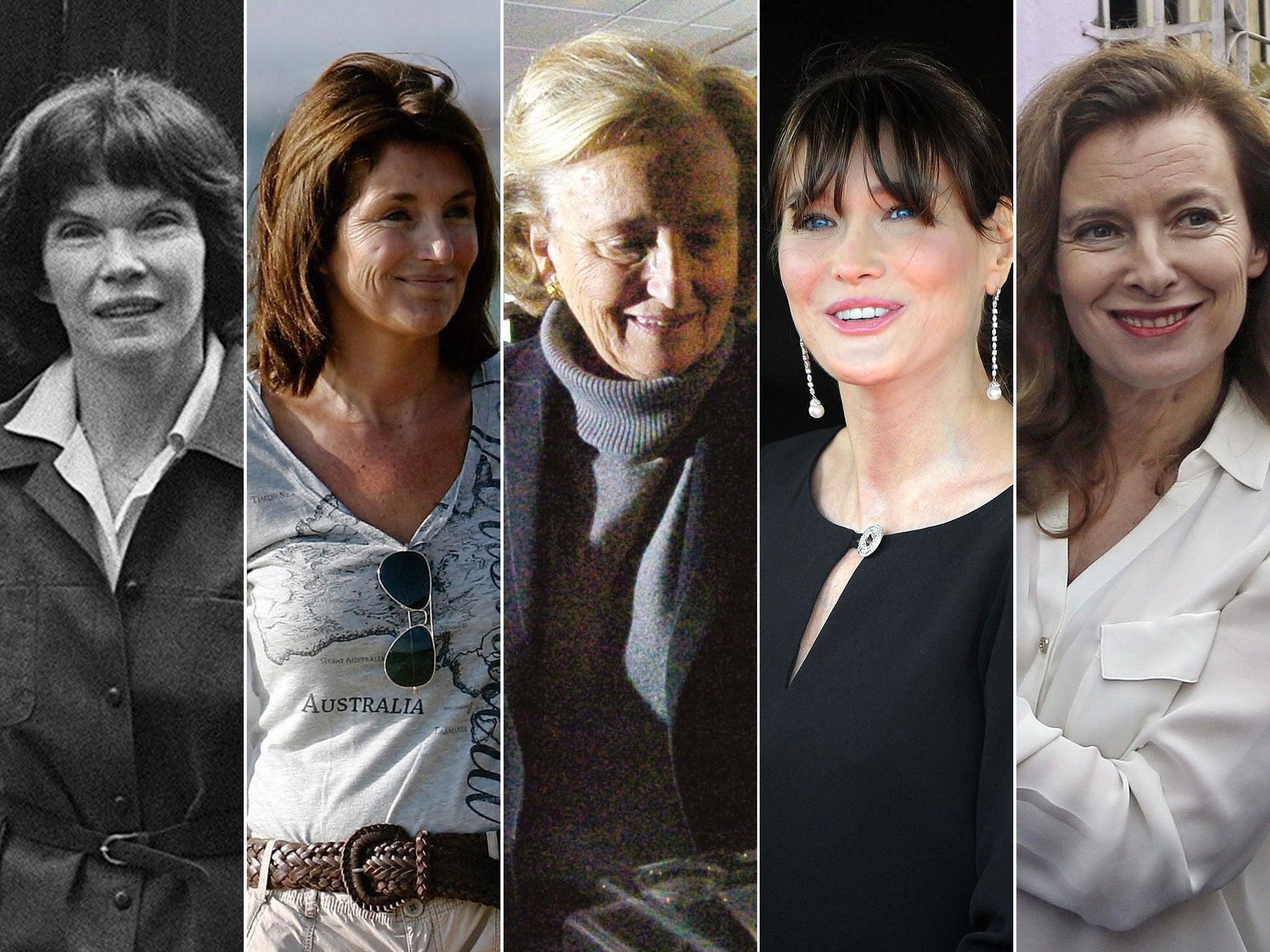New book reveals why being First Lady of France is a miserable existence
'Premières Dames' claims presidents’ wives live like prisoners in Elysée Palace

Your support helps us to tell the story
From reproductive rights to climate change to Big Tech, The Independent is on the ground when the story is developing. Whether it's investigating the financials of Elon Musk's pro-Trump PAC or producing our latest documentary, 'The A Word', which shines a light on the American women fighting for reproductive rights, we know how important it is to parse out the facts from the messaging.
At such a critical moment in US history, we need reporters on the ground. Your donation allows us to keep sending journalists to speak to both sides of the story.
The Independent is trusted by Americans across the entire political spectrum. And unlike many other quality news outlets, we choose not to lock Americans out of our reporting and analysis with paywalls. We believe quality journalism should be available to everyone, paid for by those who can afford it.
Your support makes all the difference.She may be surrounded by luxury and the trappings of high office, but in France, the first lady’s lot is not a happy one.
She has no formal role, is criticised if she strikes out on her own, and ends up as a virtual prisoner in the Elysée Palace. A new book, entitled Premières Dames (First Ladies), looks at the experience of eight of them from Yvonne de Gaulle to Valérie Trierweiler and concludes that with the possible exception of Bernadette Chirac, they were all miserable.
“The President is a widower,” the wife of Jacques Chirac complained, according to extracts from the book by journalist Robert Schneider published today by Le Point. “I am nobody.” After being barred from watching the 1998 World Cup final from the presidential box, she boycotted the garden party for the victorious French team two days later. “As I wasn’t there to see them, I won’t be there to receive them,” she said. Mr Schneider told The Independent that Mrs Chirac suffered at the hands of her husband and his daughter Claude during the President’s first term, after he campaigned on a quasi left-wing platform. “Bernadette was considered too reactionary,” he said. But she came into her own after his re-election, and was sorry to leave the Elysée.
Danielle Mitterrand suffered even worse treatment from her husband after the feisty Socialist activist continued to campaign as head of her France Libertés human rights foundation while first lady. “You’ve stabbed me in the back,” he protested when she signed an open letter to the presidents of France and Algeria condemning a massacre of students in Algiers in 1991.
When in Washington in 1993 to receive a human rights award for her campaign after the first Gulf War to save the Kurds, she spoke out against the “merciless embargo” suffocating the Cuban people. Mr Mitterrand “knew better than anyone that it’s difficult to rein Danielle in,” Mr Schneider writes.
Valéry Giscard d’Estaing encouraged his naturally shy wife into a more high-profile role, but that proved disastrous. Anne-Aymone Giscard d‘Estaing, dispatched as a presidential “special envoy” was criticised when she spoke and also when she didn’t. Mr Schneider recounts how the President, at the end of his 1975 New Year’s Eve televised greeting, turned to his wife saying: “I believe that Anne-Aymone also wishes to express her greetings.” Her self-conscious appearance was so embarrassing that it was her last such performance.
As for Cécilia Sarkozy, who fled the palace only five months after the election of her husband, her reaction was: “Being first lady gets on my nerves.” But Mr Schneider says that of all the eight first ladies over the past half century, Cécilia was the one with the most political influence.
She was active in his political campaign for the presidency and had a key role in ministerial appointments, including that of her friend Rachida Dati as Justice Minister which caused a storm in the legal profession.
Nicolas Sarkozy’s ex-wife, who has now remarried, has published her own account. Much has been written about the former resident’s courtship and marriage to Carla Bruni, the singer and ex-supermodel. The – now terminated – relationship between President Francois Hollande and Ms Trierweiler has already been the subject of several books.
But Mr Schneider says that his comparison of the eight women sheds a new light on their experience. He interviewed people who are not used to talking to the press, including the son of Claude Pompidou and Anne-Aymone Giscard d‘Estaing herself.
Apart from being miserable, did the first ladies have anything else in common? Yes, says Mr Schneider, despite the infidelity “they were all in love with their husbands”.
Join our commenting forum
Join thought-provoking conversations, follow other Independent readers and see their replies
Comments